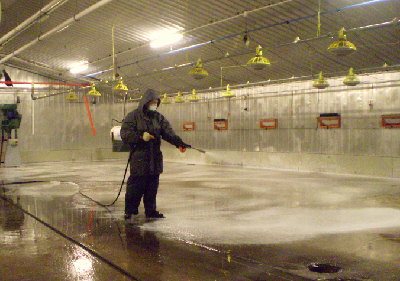



Biosecurity: Prevention is Better Than Cure
UK - When it comes to viral respiratory diseases such as Infectious bronchitis (IB) and Newcastle Disease (ND), prevention is better than cure, says the Aviagen Technical Transfer Team.Whilst these key infections can be prevented by appropriate vaccination, the best defence against disease challenges to a flock are effective biosecurity measures.
Typically, disease is brought onto the farm by some sort of vector (rodents, wild birds. contaminated clothing/footwear). Humans can carry viruses and bacteria in their nose and hair; flies, rats and birds can carry bacteria and viruses around for weeks transmitting them between farms.
Adequate biosecurity will minimise disease transmission and will ensure minimal disease carryover between flocks.
- Prevent wild bird and rodent entry into house; check buildings, water supplies and feed storage facilities regularly for signs of wild birds or rodents.
- Introduce an adequate rodent/wild bird control programme and good waste disposal practices (for feed, dead birds and litter).
- Follow appropriate washing and disinfection procedures during clean-out.
- Clean, disinfect and store equipment away from the house between flocks.
- Provide showering facilities/clean clothing for personnel and visitors.
- Keep the farm clean and tidy so as to not attract wild birds, rodents and flies.
- Evaluate biosecurity procedures regularly.

Good house-cleaning practice









